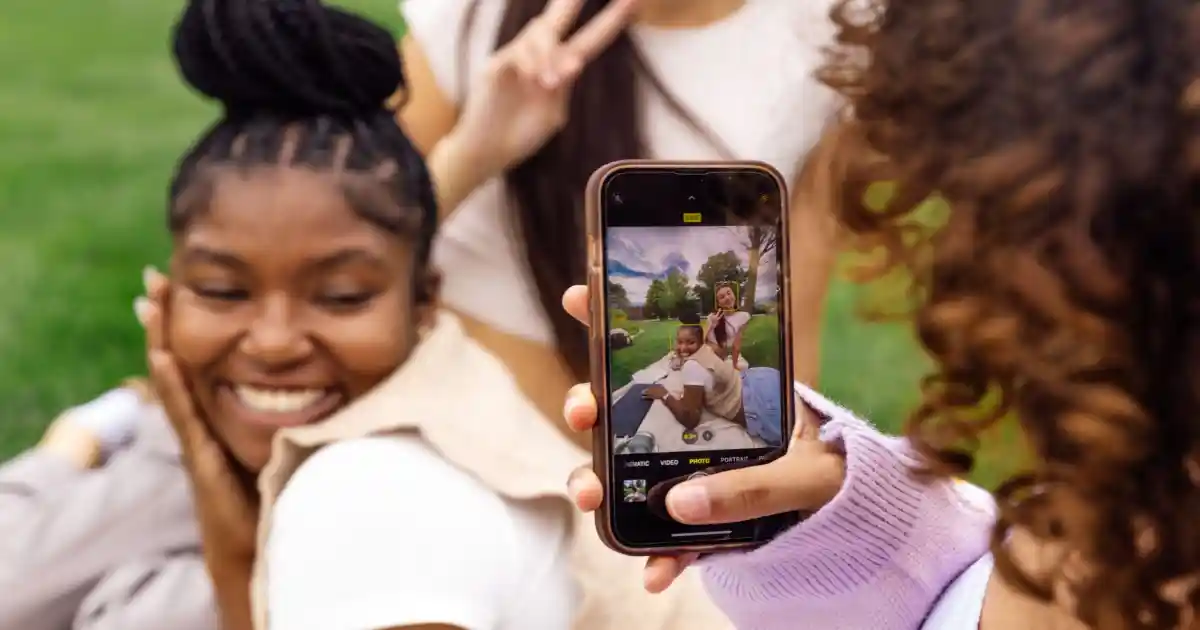How much is too much or what really counts as oversharing on social media? In 2025, a world that is progressed and heavily influenced by technology and AI particularly, is this even a relevant question anymore?
As long as you’re an adult and don’t intend to harm anyone, why worry about it too much? It’s all personal choice, right? That was my take on oversharing online a while ago, until I started witnessing the adverse effects myself.
I love social media. I love the share button. It’s all fun, keeping us connected and helping us save cherished memories. But recently, I’ve started to wonder: Are we really having fun? Are we missing the connections we once had? And have all our memories and experiences now become tied to social media?
Examples of Oversharing
Oversharing is a harmful trait where a person tends to share more than what is supposed to be shared or what is appropriate. This behavior is often linked to a lack of emotional regulation, low self-esteem, a trauma response, an urge to make connections, and social anxiety. When it comes to social media, many people do this without even realizing it. Some examples of oversharing include:
- 1. Posting anything and everything: Documenting their entire life on social media without analyzing the situation or maintaining a personal life of their own.
- 2. Uploading all unfiltered pictures: Even though they use hundreds of filters on their camera, they forget to filter the surroundings with their own eyes at least once before posting to check if it reveals their private life to everyone, including strangers.
- 3) Sharenting : Excessively uploading videos, pictures, or details about children on social media to an extent that might pose a threat to their identity theft, harassment, or future embarrassment. Read more : Sharenting : Could it lead to childhood trauma?
- 4) Exposing Raw Emotions: Venting emotions on social media or using it to express feelings when highly influenced by emotions, which can lead to actions they might regret later.
- 5) Sharing Intimate Details: Posting about relationships, family matters, friendships, personal goals, finances, career, or any personal drama on social media, which may later lead to regret or unintended consequences.
- 6) Not Respecting Others’ Privacy: Uploading pictures of others or pictures of themselves that might reveal details about others without obtaining consent or respecting their privacy.
- 7) The ‘Can’t Wait to Share This with the World’ Mode: When experiences, happiness, and emotional connections are overtaken by the urge to share them on social media, prioritizing perfect shots over living the moment. In conclusion, there are no moments of happiness that remain unknown to social media.
Am I Oversharing? Ask Yourself
1. Do I share or update every detail of my life on social media, leaving nothing for personal experiences outside of it?
2. Am I being so transparent on social media that others can easily assume what's happening in my life?
3. Am I aware of who my information is reaching, including both people I know and strangers?
4. How often do I update or post on social media?
5. Am I posting personal details—either directly or indirectly—that could compromise my privacy?
6. Do I worry, “Is she upset with me?” every time someone misses validating my post (liking, commenting, etc.)?
7. Have I bombarded my friends with messages like, “Are you busy? Did you see my status? Why didn’t you comment?”
8. Do I struggle to create or maintain a picture-perfect life online that others should admire or respect, even though it’s entirely different from my real life?
9. Do I assume someone is unhappy or boring just because they don’t post anything on social media?
10. Do I struggle to respect privacy, sometimes sending pictures of others to third parties or posting without their consent?
11. How many times have I posted something out of my current emotional state and later regretted it or been criticized by my closest friends or family?
What are the risks of oversharing on social media?
Identity Theft: What can we expect when we share all our personal information, including our address, date of birth, family details, pictures from different angles, and voice modulations with strangers, including malicious individuals?
Phishing, Hacking & Blackmailing: We have all received a spam email at least once, even if we lead a very private life. This spam looks more legitimate and compelling when they have access to our personal information. The same goes for hackers and blackmailers.
Mental Health Challenges: The habituation to validation and self-esteem from likes and counts, the comparisons, cyberbullying, and the pressure to maintain or build a positive image, all lead to mental health challenges, including anxiety and depression.
Invasion of Privacy: Privacy issues associated with oversharing affect the people around the person as well. At some point, even if the person needs to keep certain things private, it becomes really challenging because people can easily assume what is happening due to the level of transparency and predictability.
Addiction: You might have heard of FOMO. Addiction takes many forms: the obsession with building a fake world around oneself, staying updated, staying connected, unnecessary comparisons, unhealthy competitions, and many more!
Reputation Damage / Fake Image Building: A question to our reputation, especially at work, arises due to old posts showcasing our past selves, opinions, and life. There is also the misconception of our image based on our social media presence, which might differ from our actual self, among other concerns.
Is it okay to overshare on social media?
Everyone has their own definition of privacy and boundaries, so I can’t define what oversharing means for you, nor can you define it for me. Whatever the choice, be a responsible and mature person, and think about the short-term and long-term consequences it can cause.
What causes oversharing on social media?
Many reasons have been linked to the behavior of oversharing on social media. Some of these include:
- A tendency to seek constant validation from others or exhibit attention-seeking traits to feel good about themselves.
- Using oversharing as a coping mechanism due to low emotional intelligence or a lack of emotional regulation. This can lead to impulsive actions influenced by emotions like happiness, excitement, frustration, or sadness.
- Following trends without being aware of the aftereffects, simply going with the flow, or having a “just have fun, take it easy” policy.
- Escaping reality by purposefully creating a fascinating online world and feeling content living in it or making others perceive them in that way.
- An urge to stay connected, which makes them overshare or constantly update others.
How to Avoid Oversharing
Social media is fun, and it’s really great to have a platform that keeps all of us connected, even with our busy lives and from different parts of the world.Simple steps like changing privacy settings, being mindful of activities, and staying aware can make a big difference.
1. Define your intention or motive behind sharing before hitting the upload button. This can help you become more selective and mindful of the process.
2. Make genuine connections outside of social media, which will help you appreciate your life more.
3. Prioritize experiences over virtual life. Stop thinking about “Insta-perfect” photos or viral reels every time you get a chance to enjoy the moment.
4. Double-check before posting and confirm that it won’t affect your life in the future, even after things have changed. Avoid embarrassment or the risk of bullying.
5. Start journaling to help process your emotions and avoid unhealthy venting or revealing personal incidents.
6. Find hobbies that can help you improve as a person and boost your mental health. Discover 30 unique mindful hobby ideas to inspire yourself.
7. Check and think about your privacy settings before posting, and consider what might end up in the hands of complete strangers.
Reflections from Mindful Portrait

Oversharing on social media often starts as a harmless, fun activity, and the person engaging in it may never realize how it breaches their privacy, affects their mental health, and eventually becomes an addiction, a part of their routine, taking away their genuine self. Identifying and differentiating the point when sharing becomes oversharing can be the first step in overcoming this challenge. Building a happy, genuine tribe that loves us for who we are, and having a life outside of social media, is the change we all need for better quality of life and mental health.

